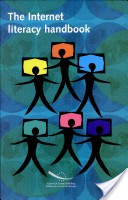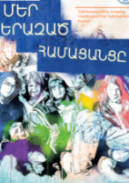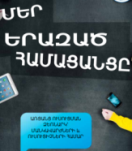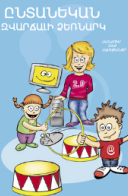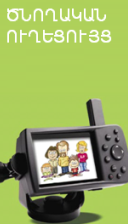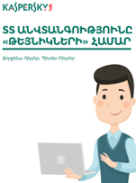Media Education Center Takes Part in 3rd EuroDIG in Madrid
3rd EuroDIG, the European Dialogue on Internet Governance, an open platform for informal discussion and exchange on public policy issues, was held on April 29th and 30th in Madrid bringing about 360 stakeholders from all over Europe. EuroDIG 2010 was organised by the Council of Europe and the Swiss Federal Office of Communication, and the Spanish Internet Governance Forum, with the support of Telefónica and Fundación Telefónica, the Ministry of Industry, Tourism and Commerce of Spain and the City of Madrid.
Cross-border cybercrime jurisdiction, new Top Level Domains, Internet as a platform for innovation and development of new business models, children and social media, data protection and privacy standards, regulation of the Internet across borders, on-line content policies, principles of “network neutrality” and open Internet, – these and other issues were discussed at the forum.
How will the Future Internet with cyber-physical networks, cloud computing and new services affect our daily lives and how will content be produced and exchanged in 2020? How will consumers access and use information? How to find a balance between the social and economic value of the Internet and what are the business models for delivering content online? What challenges for human rights, rule of law and democracy?
Is it proportionate to cut access to the Internet for protecting copyright? Should Internet operators be liable for content published by their users? Participants also discussed the regulation of the Internet across borders, cross-border investigation on cybercrime, access to data in third countries and new mechanisms for collection, analysis, exchange of data between law enforcement authorities at the forum.
Armenian participants Khachatur Manukyan, representative of the RA Ministry of Transport and Communication and Narine Khachatryan, Deputy Director at Media Education Center took active part in various discussions at the forum. Media Education Center's Narine Khachatryan contributed to shaping the Workshop Five, dedicated to children and social media (Read more here). The workshop discussed positive impact of social media for civic education, participation and democracy, as well as issues of protection and empowerment of children. As participants mentioned, new technologies suggest new unprecedented opportunities for self-directed and interest-driven learning and socializing for students, and innovative and process-driven teaching and collaboration for educators.
The workshop concluded, that ICTs provide children with an unprecedented possibility of having their voice heard and participate in the public discourse of society; children and youth can use the Internet to advance positive changes in society. Meanwhile protectionist educational approaches to the use of Internet often produce negative results: they restrict the possibility of children to learn how to cope with risks.
Participants stressed, that new pedagogies of communication should help children to develop social and technological skills, digital literacy programmes should also be provided for parents and teachers. One of the main messages of the workshop was that media literacy programs should be aimed to teach children a thoughtful and critical use of the Internet making them not passive consumers but also active producers of media content.
Due to the efforts of the Council of Europe Office in Armenia, Diplo Foundation and ITF an Armenian HUB was created in early April in the context of Eurodig Conference. The creation of this HUB enabled not only the remote participation in the Conference, but also served as a preriquisite to think over the need of creating an open forum for Internet Governance in Armenia and discuss IG issues on the spot. The 20 Armenian IT activists admitted that the discussion of those was very vital in the long run. The Armenian HUB used the possibility of remote participation to ask a few questions to experts in Madrid, to get answers to some of them, and to constitute a part in the overall European Internet Governance Picture. The participants planned to continue the discussions and expressed readiness to create an IGF in Armenia in the short run.
The EuroDIG Organisation Network, created in 2008, is an open an inclusive platform for European stakeholders such as the Council of Europe, Swiss Federal Office of Communication (OFCOM), DiploFoundation, Telefónica, red.es, European Commission, European Parliament, Fundación Telefónica, Global Network Initiative, Medienstadt Leipzig e.V., Business Action to Support the Information Society (Basis), Ciberdelincuencia.Org, Club of Rome / European Support Center, Comunica-ch – Swiss civil society platform for the information society, UK Department for Business, Innovation and Skills (BIS), European Internet Services Providers Associations (EuroISPA), European At Large Organisation (EU-RALO), European Broadcasting Union (EBU), Forum des droits sur l’internet, Fundación Madrid Tecnología, German Association of Internet Economy (eco), Finnish Ministry of Foreign Affairs, French Ministry of Foreign Affairs, Icelandic Ministry of Science, Education and Culture, Swiss Government, International Chamber of Commerce (ICC), INSAFE, ISOC-ECC, Media Education-Armenia, Portuguese Ministry of Science, Technology and Higher Education (UMIC), NOMINET, SWITCH, UNG Media and United Service Union (ver.di).

